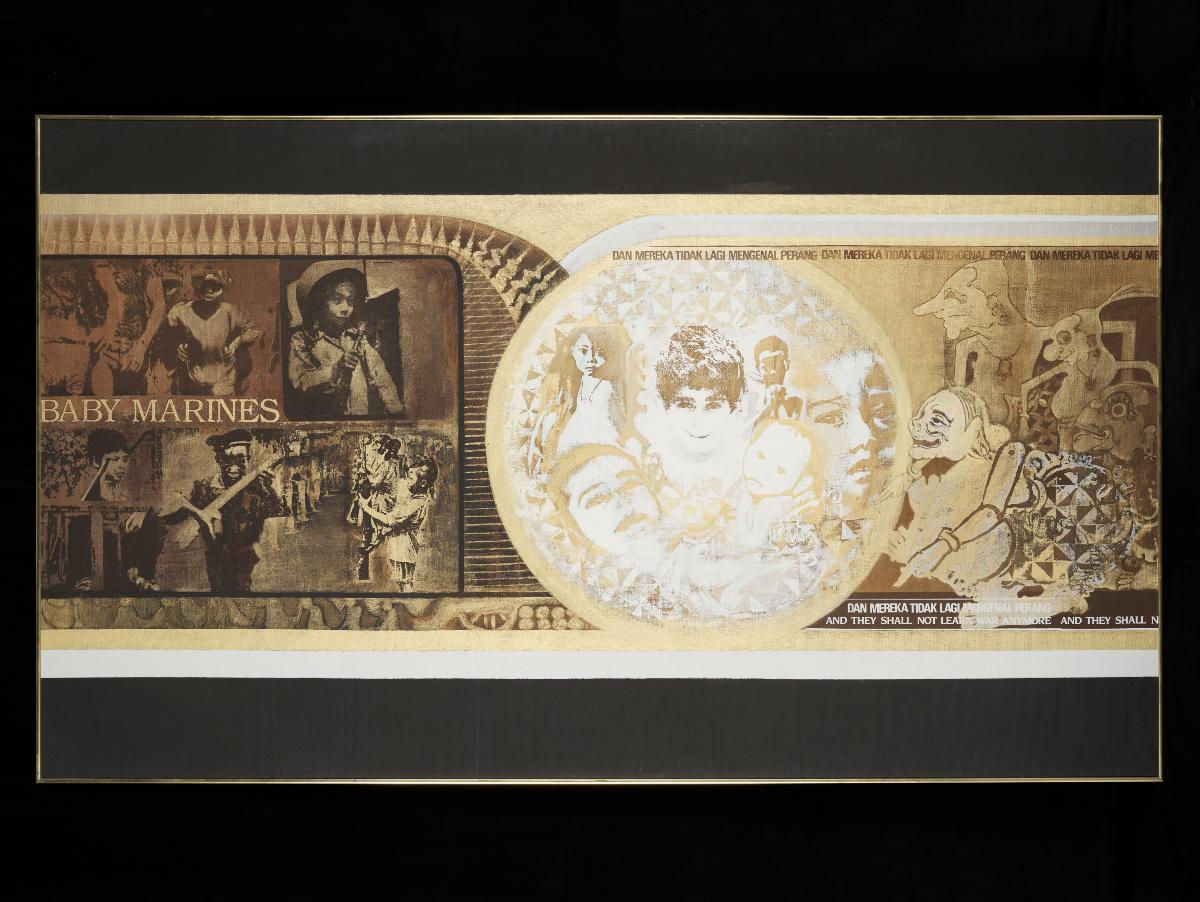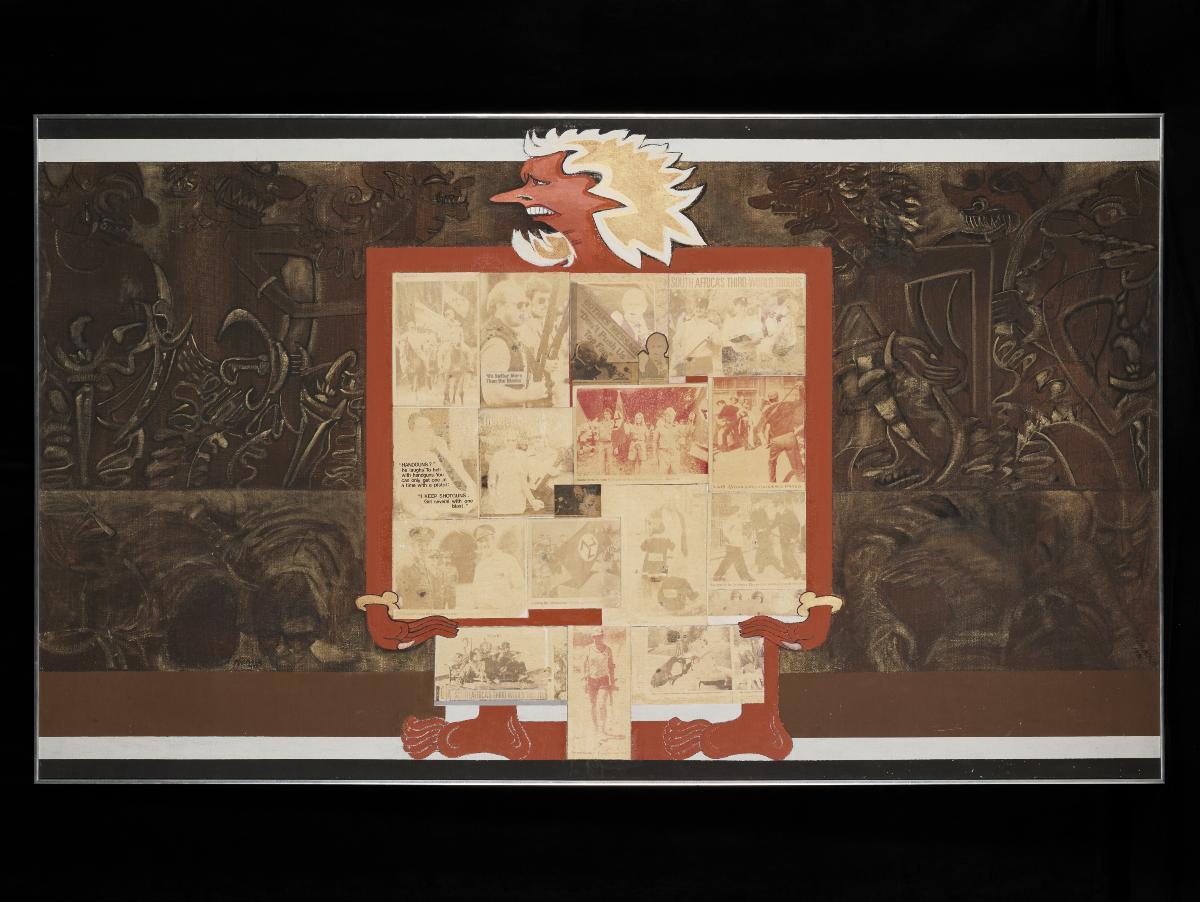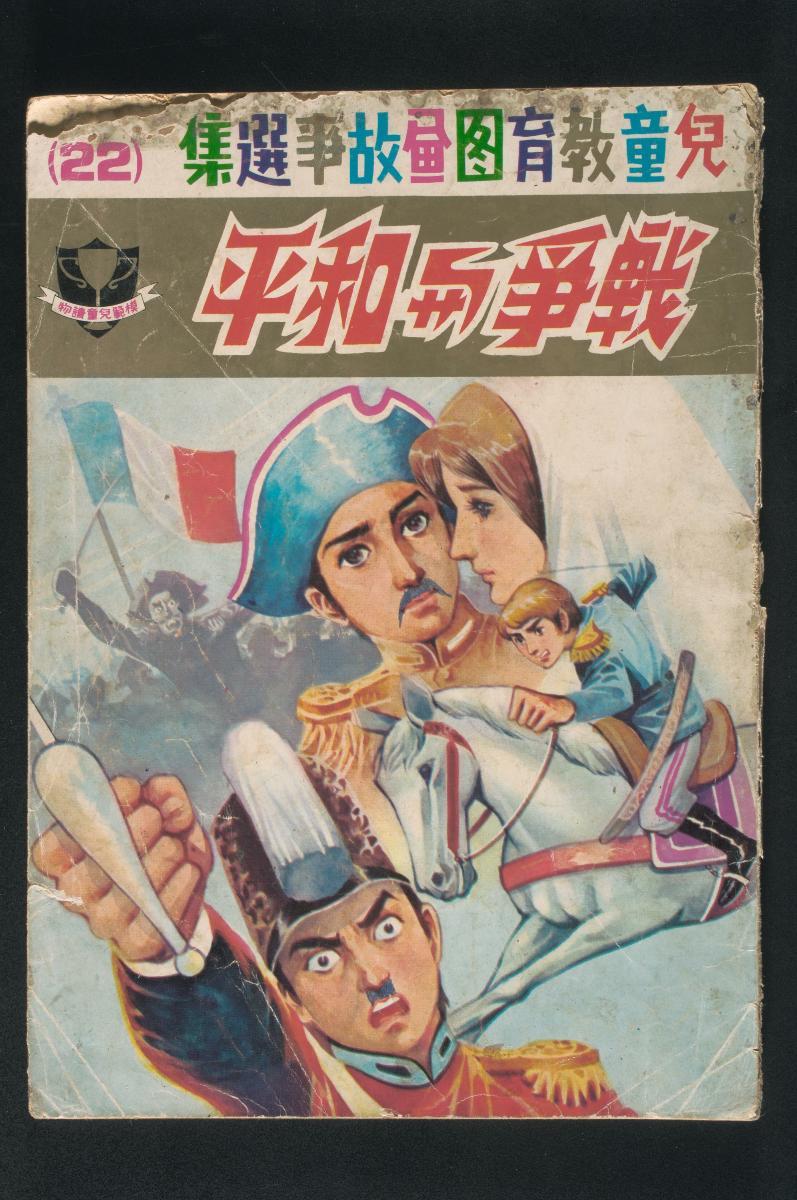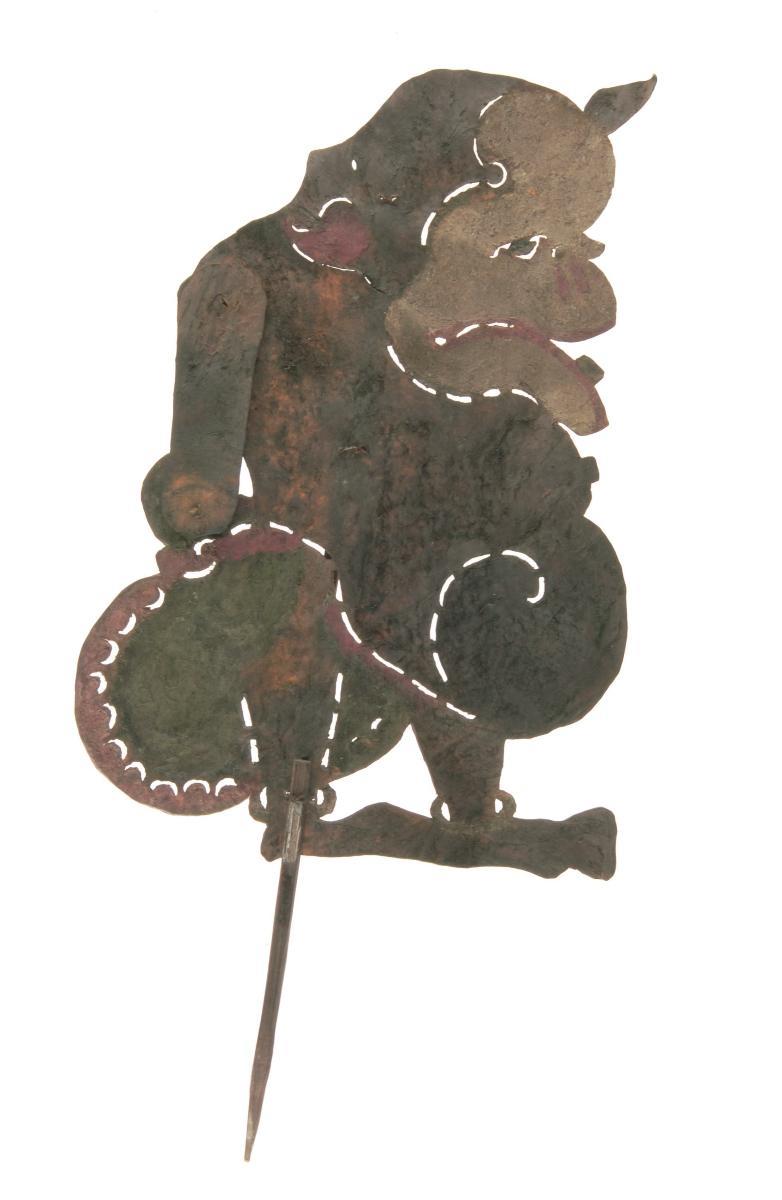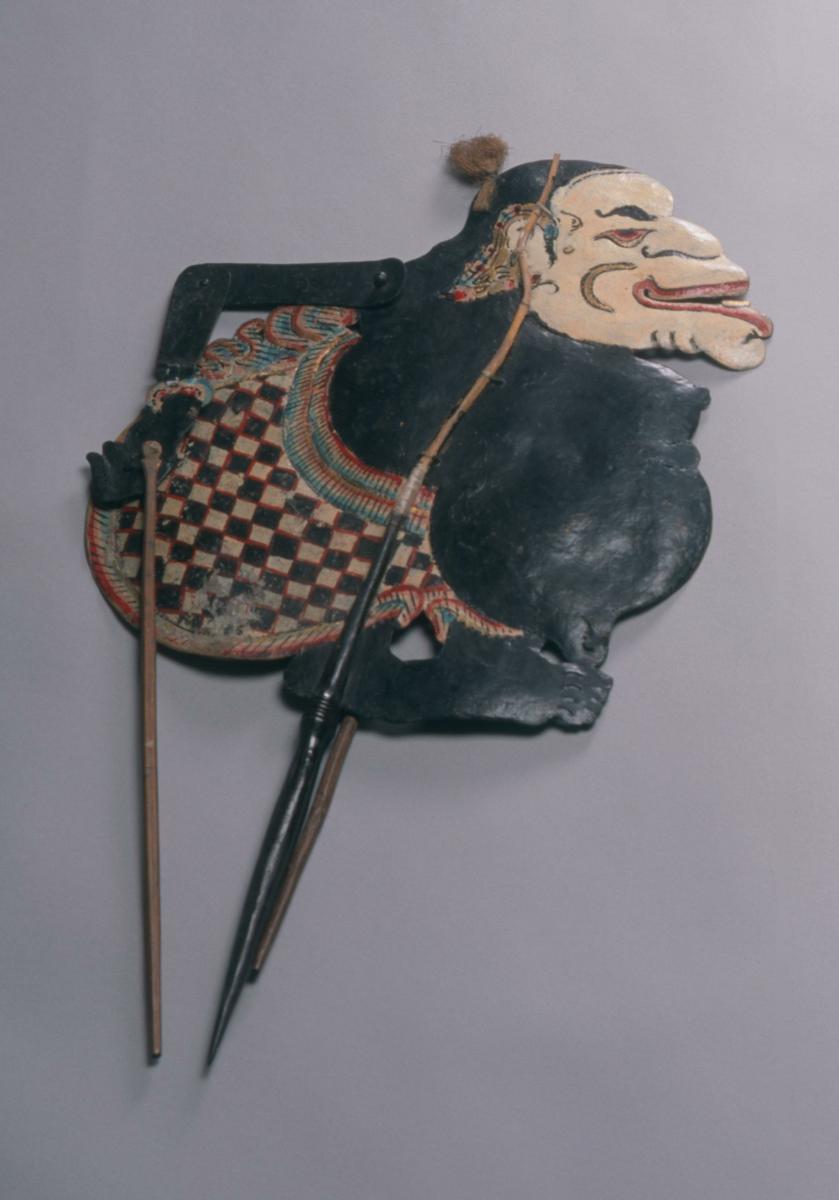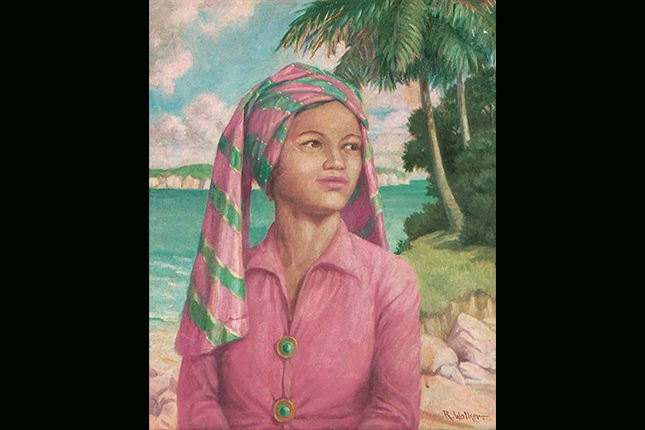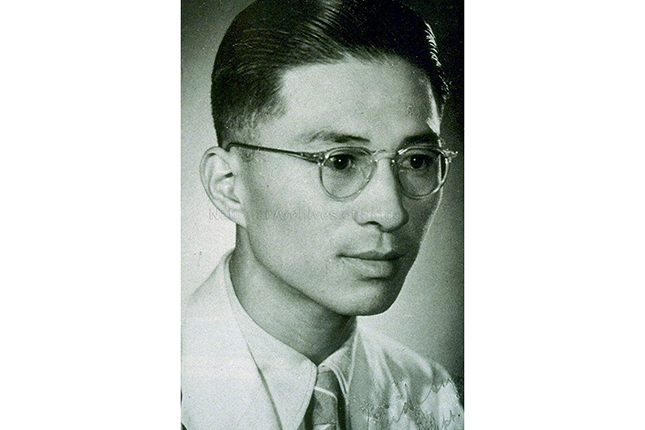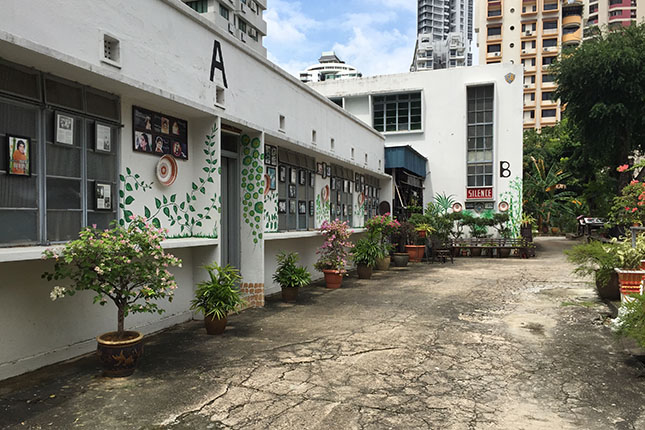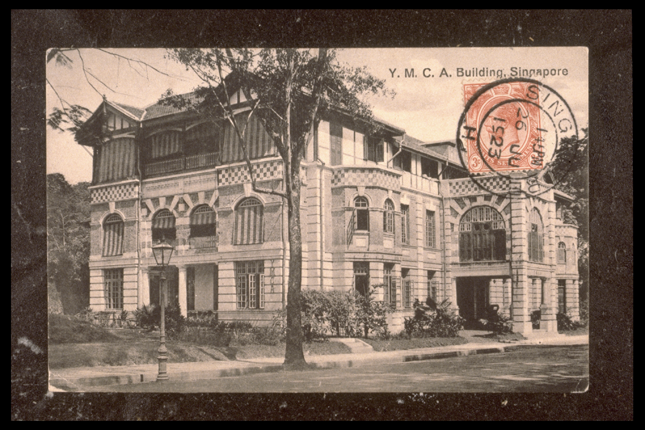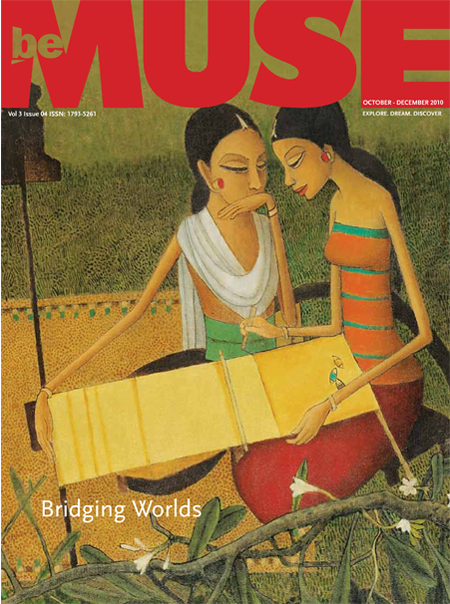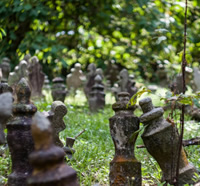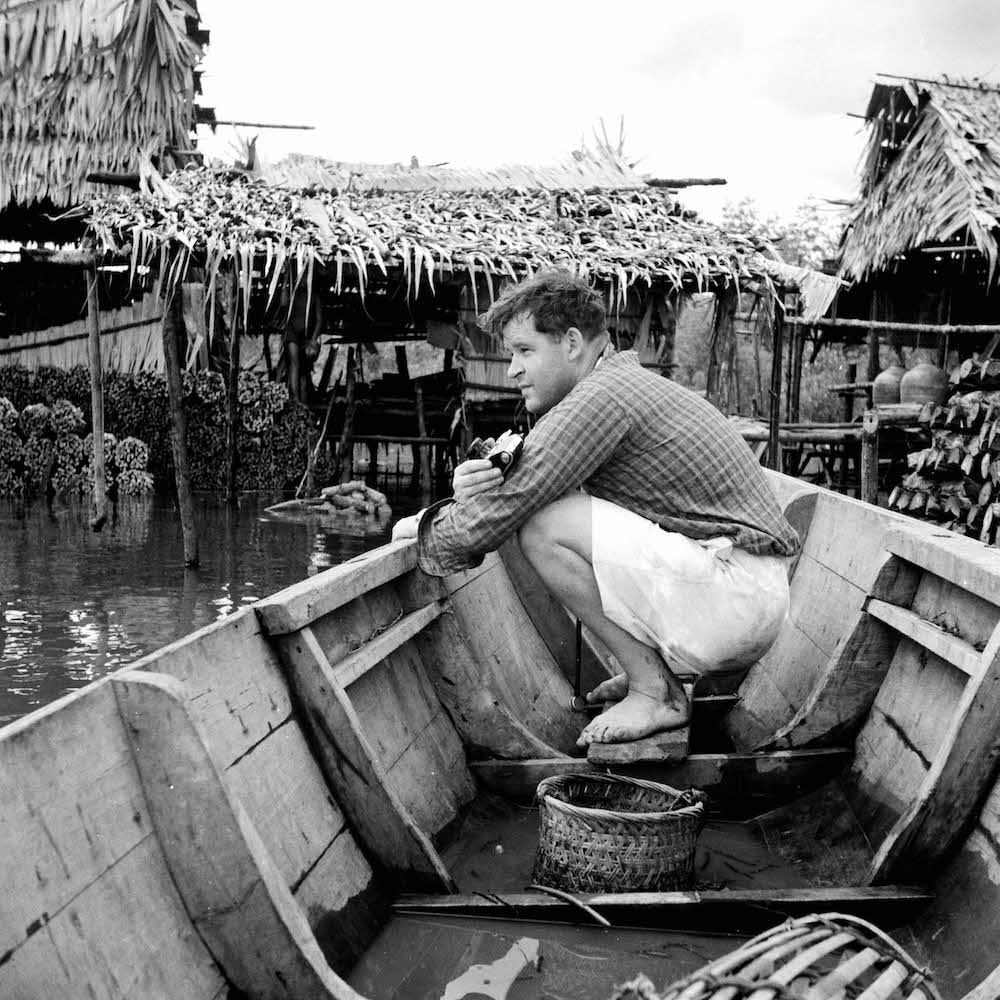A prominent and pioneering figure in Malaysian art, Nirmala Dutt Shanmughalingam (b. 1941, Penang, d. 2016, Kuala Lumpur) has devoted her art towards documenting and expressing human predicaments, adversities and failures. Through photography and painting, which often incorporated the use of newspaper cuttings, Nirmala’s art was committed to awakening the viewers’ social conscience and awareness of socio-political struggles worldwide. Save the Seed That Will Save the Black People, Semar: Consoling the Children of War and Friends in Need form a triad of paintings in the Collection that demonstrates her incorporation of Javanese wayang motifs as a distinctive stylistic development to further her stand on being resolutely anti-war and anti-racism. Due to the regional entrenchment of wayang characters, stories and morals in the people’s lives and imagination, Nirmala sees wayang as an ethical tool to raise consciousness about global issues and humanistic values, and thereby effect societal change. At the centre of Save the Seed That Will Save the Black People, Margaret Thatcher’s arms encircle an area of journal cuttings reporting on the white supremacist paramilitary organisation, the Afrikaner Weerstandsbeweging (AWB) or Afrikaner Resistance Movement, who are against the native South Saharan Africans represented by the ANC (African National Congress). Thatcher is also defended by a phalange of ogre-like mendacious wayang warrior figures at the back. The AWB are also actively recruiting white youths to their racist cause, then prompting Nirmala’s exhortation that one must “save the seed”, ie. our young people, in order to safeguard the lives and legacies of the black people. Nirmala’s concern for the young and the exploitation of child soldiers extends also to the painting Semar: Consoling the Children of War (eg. BABY MARINES on the painting’s left). The centre of the painting reuses images of children featured in her previous works such as the Children of Asia series and Squatters series but also shows the wayang character of Semar, the wisest and most divine of the Punokawan clowns (Semar, Petruk, Gareng and Bagong) speaking to the children on the right of the painting, as he seems to say “DAN MEREKA TIDAK LAGI MENGENAL PERANG”, or “AND THEY SHALL NOT LEARN WAR ANYMORE”.




